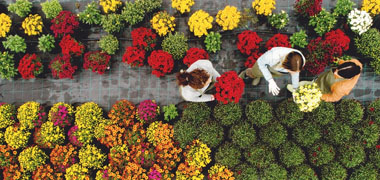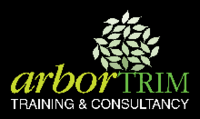
Agriculture courses in Hobart
Course providers in Hobart
The following providers offer Agriculture courses in Hobart, Tasmania.






























Career Pathfinder
Skills shortages + AI Exposure
Discover in-demand careers and understand how each role may be impacted by AI and automation.
- See in-demand occupations across Australia
- Check AI Exposure ratings
- Compare training duration and average income
Choose a study area
Beekeeping
Beekeeping in Australia is gaining popularity as a rewarding and environmentally conscious career path. With several training options available to asp...
Fishing and Aquaculture
If you're interested in building a career in the Fishing and Aquaculture sector, Australia has an impressive range of courses designed to cater to bot...
Forestry
Welcome to the Forestry section of Courses.com.au, where you can explore a diverse range of training opportunities available across Australia. With 33...
Livestock and Animal Production
Embarking on a career in livestock and animal production offers a rewarding path for those passionate about agriculture and animal care. With a variet...
- Farmhand
- Station Hand
- Piggery Attendant
- Bore Runner
- Organic Farmer
- Farm Manager
- Station Manager
- Dairy Farm Manager
- Agribusiness Manager
- Poultry Farm Worker
- Livestock Transporter
- Sheep Shearer
- Sheep Shearing Trainer
- Wool Worker
- Wool Classer
- Stock and Station Agent
- Pen Rider
- Cattle Worker
- Livestock Worker
- Tractor Driver
- Livestock Handler
- View all
Permaculture
If you're interested in exploring the principles of sustainable living through Permaculture, you've come to the right place. At Courses.com.au, you ca...
Production Horticulture
Production Horticulture is an essential field in Australia, contributing significantly to the agriculture sector and employing thousands of individual...
- Farmhand
- Nursery Hand
- Vineyard Hand
- Organic Farmer
- Agronomist
- Horticulturalist
- Winemaker
- Nursery Manager
- Agricultural Manager
- Nurseryperson
- Farmer
- Seed Technician
- Agricultural Consultant
- Agricultural Technician
- Agricultural Scientist
- Agricultural Economist
- Crop Scientist
- Cotton Ginner
- Agricultural Engineer
- Harvester Driver
- Mobile Plant Operator
- Plant Propagator
- Horticultural Assistant
- Nursery Worker
- Vineyard Worker
- Agricultural Pilot
- View all
Winemaking
Winemaking is a rewarding field that combines traditional techniques with modern innovation. At Courses.com.au, we provide a comprehensive list of win...
Further reading


Most popular horticulture courses
29th June 2022
Most popular trades courses
26th July 2022More about Agriculture courses
For those looking to pursue a career in the agriculture industry, Hobart offers a wealth of opportunities through a variety of specialised courses. With 14 Agriculture courses available in the Hobart region, students can explore diverse areas of study including Permaculture, Forestry, and Livestock and Animal Production. The local presence of respected training providers such as AVTA and TasTAFE, among others, ensures that students benefit from face-to-face learning experiences as they work towards sought-after qualifications.
The agriculture sector in Hobart provides numerous career paths that students can pursue upon completion of their training. Those with ambitions to become a Farmhand, Organic Farmer, or even a Farm Manager will find that the skills gained through these courses are essential. Additionally, individuals may be drawn to careers such as Agronomist or Horticulturalist for more specialised roles in the field of agriculture, thereby opening doors to a variety of fulfilling job prospects.
Hobart is not only surrounded by beautiful landscapes but also by a thriving agricultural community. Courses such as the one provided by University of Tasmania and other local institutions ensure that students receive quality training relevant to the needs of the industry. Whether your interests lie in Production Horticulture or Winemaking, there are tailored programmes available to help you achieve your career goals while contributing to the agricultural landscape of Tasmania.
By exploring the educational options available, students can derive knowledge that directly translates to their future job roles within the agriculture sector. Training providers in Hobart equip students with the necessary skills to advance into roles such as Vineyard Manager or Aquaculture Manager. As the demand for skilled professionals increases, taking the first step with a quality course can set you on the path to a rewarding career in this essential industry. For a complete list of Agriculture courses in Hobart, visit this page.

